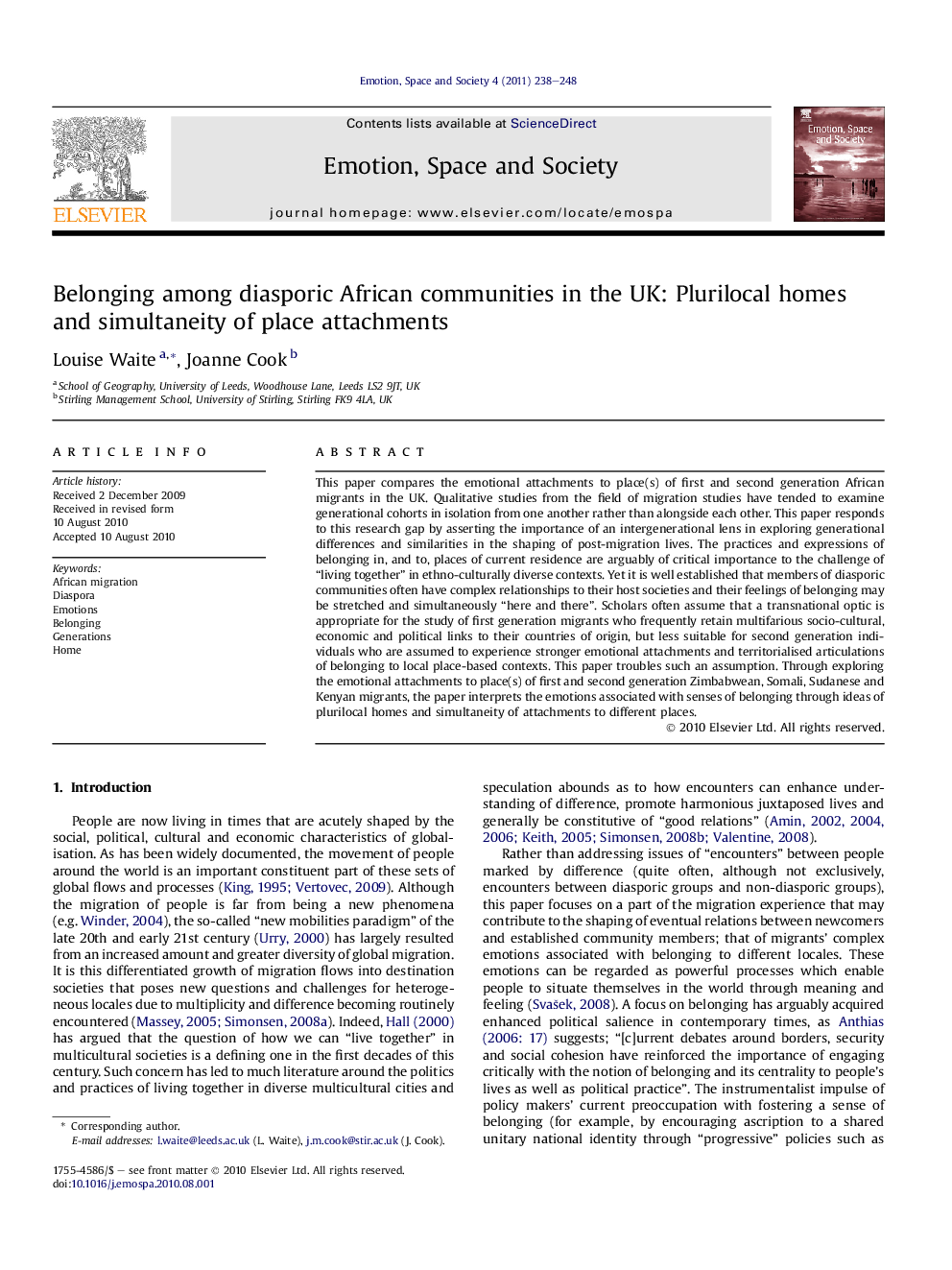| Article ID | Journal | Published Year | Pages | File Type |
|---|---|---|---|---|
| 946789 | Emotion, Space and Society | 2011 | 11 Pages |
This paper compares the emotional attachments to place(s) of first and second generation African migrants in the UK. Qualitative studies from the field of migration studies have tended to examine generational cohorts in isolation from one another rather than alongside each other. This paper responds to this research gap by asserting the importance of an intergenerational lens in exploring generational differences and similarities in the shaping of post-migration lives. The practices and expressions of belonging in, and to, places of current residence are arguably of critical importance to the challenge of “living together” in ethno-culturally diverse contexts. Yet it is well established that members of diasporic communities often have complex relationships to their host societies and their feelings of belonging may be stretched and simultaneously “here and there”. Scholars often assume that a transnational optic is appropriate for the study of first generation migrants who frequently retain multifarious socio-cultural, economic and political links to their countries of origin, but less suitable for second generation individuals who are assumed to experience stronger emotional attachments and territorialised articulations of belonging to local place-based contexts. This paper troubles such an assumption. Through exploring the emotional attachments to place(s) of first and second generation Zimbabwean, Somali, Sudanese and Kenyan migrants, the paper interprets the emotions associated with senses of belonging through ideas of plurilocal homes and simultaneity of attachments to different places.
